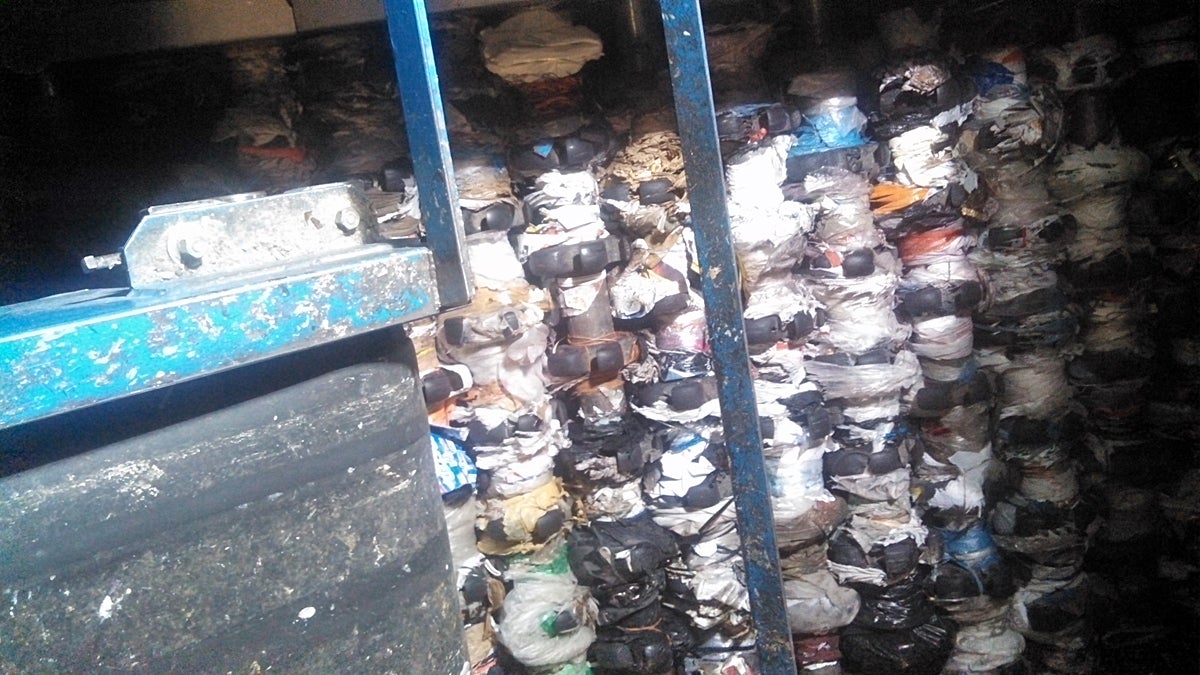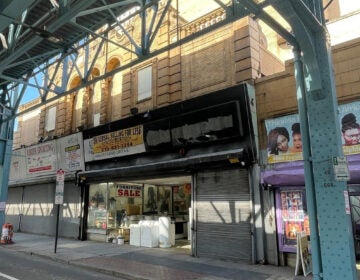As Philly contends with declining market for trash, plastic bags bog recycling efforts

Plastic bags wrapped around a 'star screen' at a ReCommunity Materials Recovery Facility (Image courtesy of Philadelphia Streets Department)
With Christmas in the rear-view mirror, Philadelphia now officially enters peak recycling season.
However, a slowing global economy, particularly in China, means the city won’t be getting as much cash for its trash as in years past.
Phil Bresee, the city’s director of recycling, says the typical Philadelphia household will put out about 10 pounds more trash than usual this week. Overall, the city will see about a 15 percent boost in household waste – 2,000 extra tons altogether — most, but not all, of it recyclable.
“The things we need to keep out of the recycling bin are things like plastic bags, Styrofoam, packing peanuts,” Bresee said. “We can take paper gift wrap, but the metallic type we won’t be able to take … bubble wrap, as well.”
Plastic grocery bags are particularly annoying to recycling-plant workers, Bresee said.
“The typical materials recovery facility, where we send our recyclables, will shut down probably an hour or two every shift just so they can peel the plastic bags off the moving parts, all the conveyors and things like that in the plant,” he said. “That’s really the number one material we want to keep out of the blue bin.”
Those who want to recycle such bags can usually return them to the store, Bresee added.
Recyclable materials have been a valuable commodity to the city. As recently as 2012, the city was able to earn about $6 million by selling recyclables, with paper and cardboard ranking as most valuable.
But a global economic slowdown has depressed the recyclables market, Bresee said – most notably in China, which is not only buying less, but being choosier about the quality of what it does buy.
So last year, the city earned just about $2 million from recyclables, and this year it will be closer to breaking even, he said.
But even without generating revenue, recycling saves the city money by keeping landfill costs down. “The real savings is in avoided disposal costs,” said Bresee, who estimates that the city saved about $7 million last year by reducing its levels of landfill waste. “For every ton of material we recycle, that’s one ton of material that we don’t have to dispose of.”
WHYY is your source for fact-based, in-depth journalism and information. As a nonprofit organization, we rely on financial support from readers like you. Please give today.




